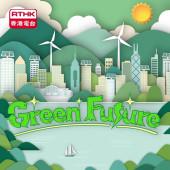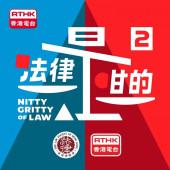 載入中 ...
載入中 ...
返回
Paradise Preserved
2025-06-11
Hong Kong's wetlands are primarily located near the Inner Deep Bay, with Mai Po designated as a Wetland of International Importance under the Ramsar Convention. Each year, over 100,000 waterbirds migrate to these wetlands to rest and refuel, including several globally endangered species.
Earlier this year, the Agriculture, Fisheries and Conservation Department (AFCD) launched public engagement activities for the proposed Sam Po Shue Wetland Conservation Park. However, environmental groups have raised concerns over recurring damage to protected wetlands in recent years, including illegal dumping and landfilling, which threaten bird habitats.
Over the years, the government has used various approaches to conserve wetlands. How can these experiences help in building a comprehensive wetland conservation park system in the future?
Earlier this year, the Agriculture, Fisheries and Conservation Department (AFCD) launched public engagement activities for the proposed Sam Po Shue Wetland Conservation Park. However, environmental groups have raised concerns over recurring damage to protected wetlands in recent years, including illegal dumping and landfilling, which threaten bird habitats.
Over the years, the government has used various approaches to conserve wetlands. How can these experiences help in building a comprehensive wetland conservation park system in the future?
Human civilization has made great strides, with technology evolving at an extraordinary pace. Yet, all of these accomplishments rest on the finite resources of our shared planet. As we shape a better future, we must also consider the legacy we leave behind for the generations that will follow.
Sustainability is a shared global commitment, encompassing three key dimensions: environmental, social, and economic. According to the United Nations, sustainable development is defined as "Development that meets the needs of the present without compromising the ability of future generations to meet their own needs." In 2015, the United Nations introduced the "2030 Sustainable Development Goals" (SDGs), a framework of 17 core objectives, further broken down into 169 specific targets and 230 measurable indicators, designed to guide collective global efforts toward a sustainable future.
In response to the shared global mission of protecting the planet, Hong Kong established the Council for Sustainable Development over two decades ago to promote sustainability. In recent years, the government has introduced policies across various sectors aimed at advancing sustainable development—transforming waste into energy, promoting the value of conserving Earth's resources, and fostering the creation of green communities.
Presented as a ten-part documentary series, each episode focuses on a specific sustainability issue, exploring how aspects of daily life—such as clothing, food, housing, and transportation—are impacted. The series examines how government policies drive sustainable development and how citizens can embrace green living, contributing their small yet meaningful efforts toward a sustainable future. Together, we can create a better life today while protecting the Earth for tomorrow.
Sustainability is a shared global commitment, encompassing three key dimensions: environmental, social, and economic. According to the United Nations, sustainable development is defined as "Development that meets the needs of the present without compromising the ability of future generations to meet their own needs." In 2015, the United Nations introduced the "2030 Sustainable Development Goals" (SDGs), a framework of 17 core objectives, further broken down into 169 specific targets and 230 measurable indicators, designed to guide collective global efforts toward a sustainable future.
In response to the shared global mission of protecting the planet, Hong Kong established the Council for Sustainable Development over two decades ago to promote sustainability. In recent years, the government has introduced policies across various sectors aimed at advancing sustainable development—transforming waste into energy, promoting the value of conserving Earth's resources, and fostering the creation of green communities.
Presented as a ten-part documentary series, each episode focuses on a specific sustainability issue, exploring how aspects of daily life—such as clothing, food, housing, and transportation—are impacted. The series examines how government policies drive sustainable development and how citizens can embrace green living, contributing their small yet meaningful efforts toward a sustainable future. Together, we can create a better life today while protecting the Earth for tomorrow.











